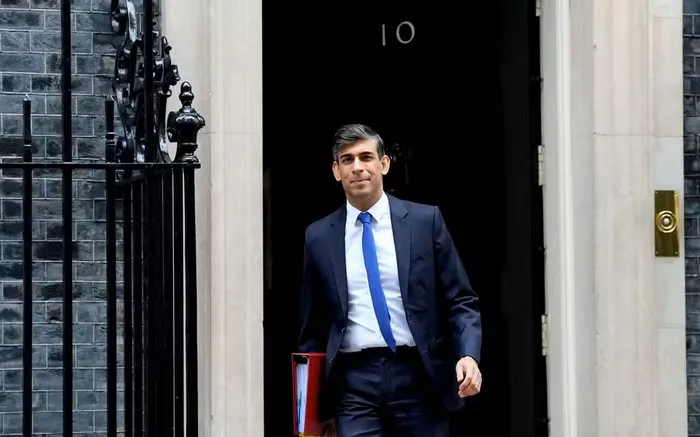As the 2024 election looms, immigration emerges as a pressing issue for Chancellor Rishi Sunak, overshadowing even the economic concerns that traditionally dominate election cycles. The landscape of immigration policy and discourse has undergone seismic shifts in recent years, with the aftermath of Brexit ushering in significant changes in both policy frameworks and the patterns of immigration.
Following the implementation of post-Brexit immigration systems, which inadvertently led to record highs in immigration figures, the government now finds itself pivoting towards a pre-election agenda focused on achieving unprecedented reductions in immigration levels.
However, the government’s handling of immigration has garnered minimal approval from the public. According to the latest Ipsos/British Future Immigration Attitudes Tracker, satisfaction with the government’s approach to immigration stands at a mere 9 percent, marking a new low in public sentiment on the issue.
In the lead-up to the election, Rishi Sunak faces heightened scrutiny on immigration compared to his counterpart, Keir Starmer. While immigration ranks as the third most important issue for Conservative voters, it languishes at 12th place among those intending to vote Labour, indicating a stark partisan divide in public perceptions shaped by political and media influences.
Despite immigration being a significant concern for a segment of the electorate, broader priorities such as the economy, cost of living, and public services dominate the electoral landscape. Nevertheless, discontentment over immigration policies has led to a fragmentation among voters, with Reform UK emerging as a challenger to the Conservatives from the right.
Trust regarding immigration policies is dispersed across the political spectrum, with no single party or politician commanding overwhelming support. While Reform UK attracts trust from a quarter of respondents with stringent views on immigration, the Greens and Liberal Democrats closely follow suit, albeit with different demographics of support.
Labour and the SNP stand out for having relatively lower negative ratings on immigration, with Labour garnering trust from 31 percent of respondents. Labour’s unique position reflects its ability to bridge the gap between its supporters, who prioritize compassion towards migrants, and Conservative voters, who express frustration over perceived shortcomings in immigration control.
For Labour leader Keir Starmer, the challenge lies in navigating this complex landscape of competing sentiments. While dissatisfaction with the government’s immigration policies presents an opportunity for opposition critique, Starmer must articulate a coherent vision that balances control with compassion, appealing to both those calling for stricter immigration measures and those advocating for a more humanitarian approach.
Ultimately, regardless of the election outcome, the issue of immigration will remain a central concern for policymakers, requiring nuanced strategies that acknowledge the diverse perspectives within society while addressing the practical challenges of immigration management.


